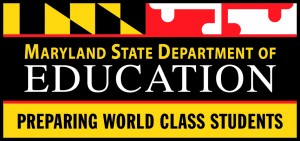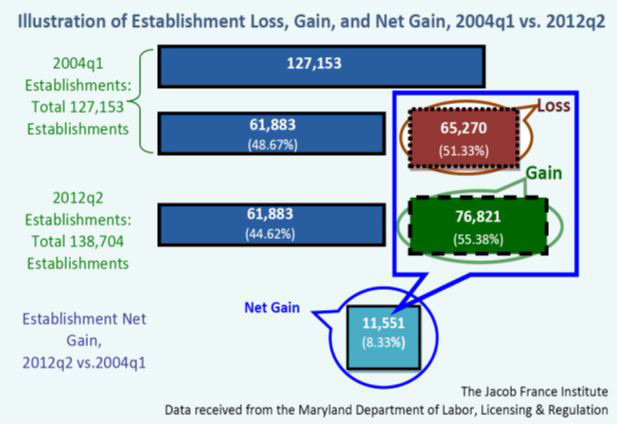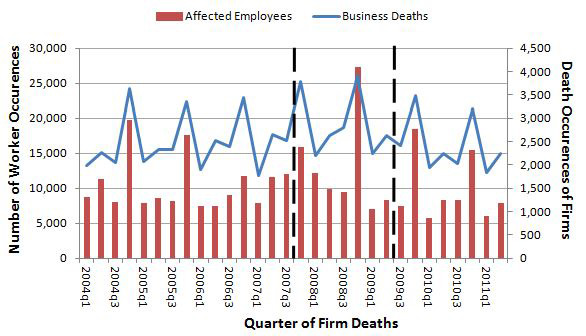State Projects
Maryland Department of Labor, Licensing and Regulation (DLLR)
-
Data Management and Analysis Technical Assistance to the Maryland Department of Labor, Licensing and Regulation
Administrative data was maintained in compliance with changing state and federal reporting requirements, and to be responsive to management needs. Data analysis was conducted and performance measures were submitted to the Maryland General Assembly, the Maryland Governor’s StateStat accountability meetings and the U.S. Department of Education (U.S. DOE). Ad-hoc management reports were also generated. Responsibilities include performing data quality diagnostics, matching state adult education data with internal and external data sources for required education and employment outcomes, as well as optimizing data collection, matching and reporting procedures.
-
The Estimated Economic and Fiscal Contribution of the Workforce Development Services Provided by the Maryland Department of Labor, Licensing and Regulation of the State of Maryland
The Maryland DLLR retained the JFI of the Merrick School of Business at the University of Baltimore to analyze the economic and fiscal contribution of DLLR’s workforce development programs in terms of the increased earnings of persons finding work after obtaining workforce development services from DLLR under either the Wagner-Peyser or Workforce Investment Act (WIA) programs. Two separate analyses of data for State Program Year 2012 were also conducted
Data Source: JFI calculations based on Quarterly Census of Employment and Wage (QCEW) administrative record extracts received from the Maryland Department of Labor, Licensing and Regulation (DLLR).
Maryland Department of Human Services (DHS)
JFI provide various data linkage, data analysis, and other technical services to the Maryland Department of Human Services, Family Investment Administration (DHS). JFI has prepared and submitted to DHS quarterly data reports for Temporary Cash Assistance (TCA) Performance Measures, has been conducting analysis of interaction among TCA, SNAP, Unemployment Insurance Benefits, has conduct a series analytical reports on Employment Opportunities for TCA Recipients in high growth industries in Maryland and Employment, is evaluating selected TCA-funded substance abuse treatment outcomes, is evaluating selected outcome impacts of the pending Maryland’s statewide time limit waiver for Able Bodied Adult without Dependents (ABAWD) recipients of Supplemental Nutrition Assistance Program (SNAP) benefits, and various Ad Hoc Reporting, legislative reporting and consulting services for DHS. Learn more about JFI’s partnership with Maryland’s DHS.
University of Maryland, Baltimore
 The University of Maryland, Baltimore is one of the largest employers in Maryland and a key provider of health and professional education in the state. Its activities contribute to the economy of Maryland in a wide variety of ways. Its purchases of goods and services in the state and the purchases resulting from the salaries it pays to Maryland workers are only the beginning point of a chain of expenditures which amplify the initial outlays into a much larger economic impact. It plays a vital role in providing a skilled and educated workforce; and is the only provider of educational services in several key areas, such as pharmacy and dentistry, in the State. Finally, the University supports economic development in the State through the commercialization of new technologies.
The University of Maryland, Baltimore is one of the largest employers in Maryland and a key provider of health and professional education in the state. Its activities contribute to the economy of Maryland in a wide variety of ways. Its purchases of goods and services in the state and the purchases resulting from the salaries it pays to Maryland workers are only the beginning point of a chain of expenditures which amplify the initial outlays into a much larger economic impact. It plays a vital role in providing a skilled and educated workforce; and is the only provider of educational services in several key areas, such as pharmacy and dentistry, in the State. Finally, the University supports economic development in the State through the commercialization of new technologies.
Reports:
- The Economic Activity Generated by the University of Maryland, Baltimore – FY2014
Kenneth R. Stanton
January 2015
Maryland State Department of Education (MSDE)
 Career and Technology Education (CTE) Students
Career and Technology Education (CTE) Students
The Jacob France Institute provides annual assistance to MSDE by supplying earnings data for CTE students as required by the Federal Carl D. Perkins Career and Technical Education Act accountability measures. Information includes earnings found in Maryland UI administrative datas, adjacent state administrative datas (DC, NJ, OH, PA, VA, WV), Federal civilian employment, and Maryland registered apprenticeship records.
Reports:
- A Perspective on the Intersection of the CEDS 4.0 CTE and Workforce Domains
David Stevens
May 2014
 Maryland Higher Education Commission (MHEC)
Maryland Higher Education Commission (MHEC)
The Jacob France Institute provides updated administrative data for participants in occupational training programs funded under the Workforce Investment Act (WIA), which MHEC maintains.
 Maryland Department of Business and Economic Development (DBED)
Maryland Department of Business and Economic Development (DBED)
JFI produces quarterly reports on employment and earnings for the DBED.
Completed Projects
Maryland Department of Labor, Licensing and Regulation (DLLR)
-
Skills Gap Estimates for Institutional and Individual Decision-Making: A Progress Report
Sponsor: Maryland Department of Labor, Licensing and Regulation (DLLR)The project analyzed skill gaps between labor supply and demand. The supply includes new graduates and workers education attainment details; the demand includes new hires and employment nuances. The analysis is conducted across demographics, level of education attainment, degree disciplines, types of employers, earnings levels, employment industries and occupations. The mobility from study disciplines to employment industries and occupations is a focal point of the project. The project also analyzed spatial mismatch between place of residence and place of work across Maryland counties. The impact from the most recent recession was also analyzed. The project drew data from multiple sources ranging from 2001 through 2012.
Report: “Skills Gap Estimates for Institutional and Individual Decision-Making: A Progress Report”
-
Workforce Data Quality Initiative Year Three Study
Sponsor: US Department of Labor, Employment and Training Administration, under a partnership of Maryland Department of Labor, Licensing and Regulation (DLLR) Office of Workforce Information and Performance and the Jacob France Institute
This study was the third in a series of reports completed under a three-year Workforce Data Quality Initiative award of federal funds to the DLLR by the Employment and Training Administration of the U.S. DOL. Relying on authorized access to the multiple administrative records for all or some of the intervening years, the study assembled a truly longitudinal integrated analytical data file comprised of confidential administrative record extracts drawn from multiple education and workforce sources covering up to nearly three decades between 1984 and 2012. This study responded to an urgent need. The flow of federal funds invested in the development of state education and workforce integrated data systems is scheduled to end state by state between now and 2016. Prospects for future federal investment in state data system integration will depend upon the business case that is made for doing so, justifying this allocation over popular competing alternatives. This study delivered evidence-based advances in the development of a strong business case for continued 4 investment in actionable longitudinal state integrated data systems and offered states a practical research design that can quickly add power to the business case through expanded geographic and time span coverage. It improved public understanding of the limits of what can be learned and acted upon based on longitudinal integrated data access alone, accompanied by specific recommendations about gaps in understanding that will remain unless and until additional relevant data elements are collected. The study called for pertinent decision making roles include governors and key legislators that hold the keys to future state education and training investments, future postsecondary students, postsecondary leadership teams, career counselors, and public employment and training program administrators.
Report: Toward A Business Case for Sustained Investment in State Longitudinal Data Systems.


